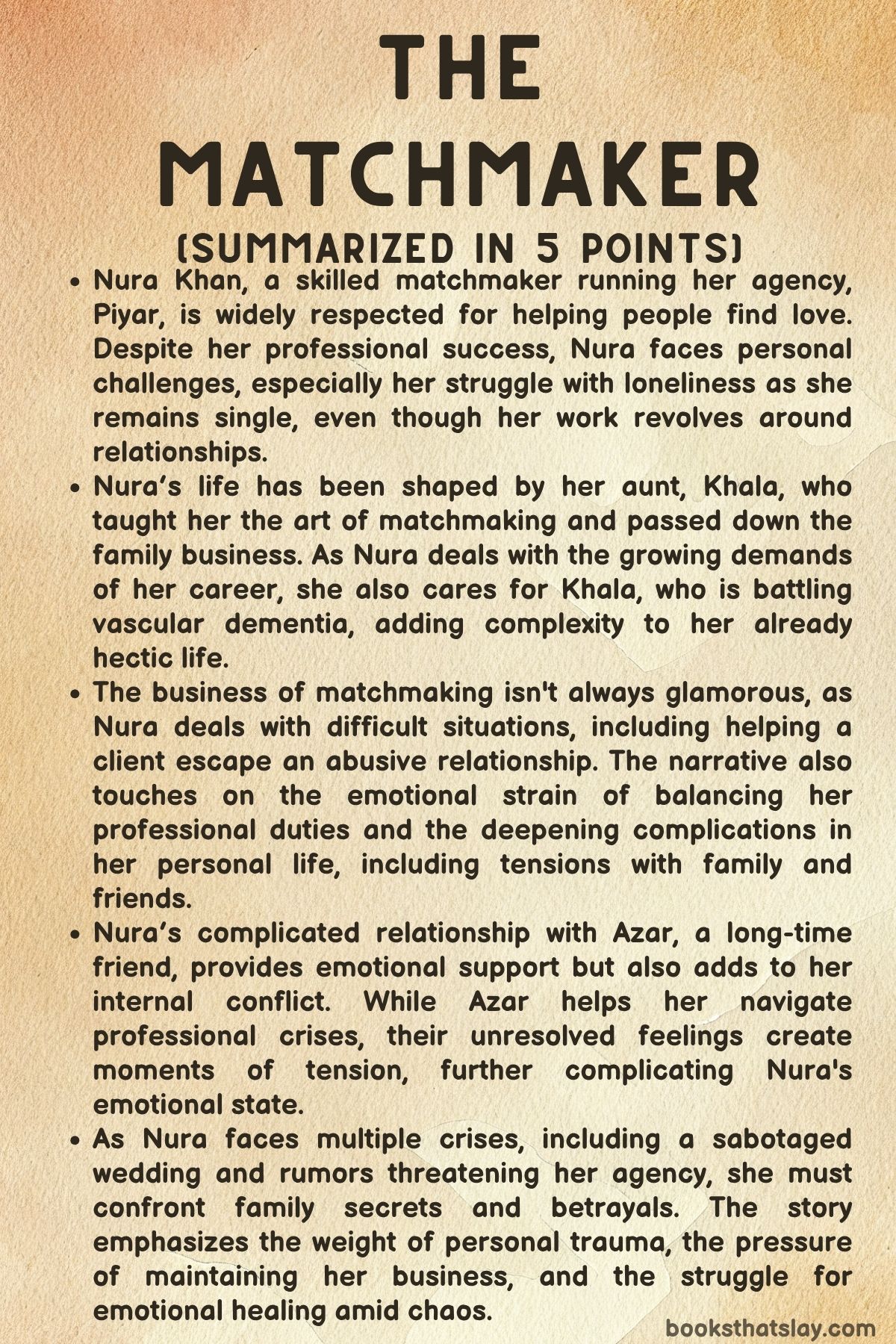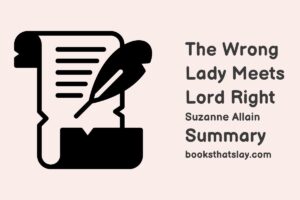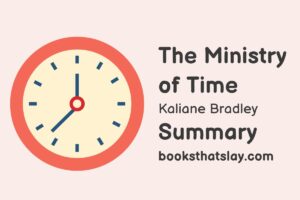The Matchmaker by Aisha Saeed Summary, Characters and Themes
The Matchmaker by Aisha Saeed is an exploration of love, family, and personal growth set in the world of matchmaking. The story revolves around Nura Khan, a successful matchmaker who runs a matchmaking agency, Piyar.
While she helps others find love, Nura’s own life is complicated by personal struggles and professional challenges. As she navigates family issues, friendships, and the weight of expectations, Nura is forced to confront her own desires and unresolved emotions. The narrative is a reflection on the intricate balance between career, personal relationships, and self-discovery, all while managing the pressures of a high-stakes profession.
Summary
Nura Khan runs a successful matchmaking agency called Piyar, located in a bustling city, where she dedicates her time to helping people from various backgrounds find love. Her career is thriving, marked by her expertise and the glamour of successful weddings that she plays a part in organizing.
However, despite her professional success, Nura struggles with a deep sense of isolation, largely because of her single status. People around her assume that, as a matchmaker, she must be married, which adds to her personal conflict.
Her career in matchmaking is something she inherited from her aunt, Khala, who raised her after the death of her parents. Khala, who taught Nura the craft, is now facing the decline of her health due to vascular dementia, and Nura finds herself taking on the responsibility of caring for her aunt while running her agency.
Despite the challenges of managing her business and taking care of her aunt, Nura finds comfort in her close friendship with Azar, a man who has been a part of her life for years. However, their relationship is complicated, as unresolved feelings from their past occasionally resurface, adding emotional strain to Nura’s already taxing life.
The matchmaking business, though glamorous, is not without its problems. Nura’s agency faces scrutiny when an article about her business is published in Vanity Fair, raising uncomfortable questions about her focus on arranged marriages.
As she navigates the fallout from the article, Nura must also manage difficult client situations. One such case involves a client named Beenish, who is in an abusive relationship.
Nura works tirelessly to help Beenish realize that she deserves better, encouraging her to move on from the toxic relationship and invest in herself.
Nura’s personal life is further complicated by the arrival of her cousin Nina, who moves in with Khala to assist with her care. Nina’s presence stirs feelings of jealousy and resentment in Nura, who feels that Nina is critical of her choices, particularly her dedication to the business.
The tension between Nura and Nina intensifies as Nina criticizes Nura’s commitment to Piyar, which has been her life’s work since childhood. This family conflict underscores much of Nura’s emotional journey as she balances her personal and professional responsibilities.
Throughout the story, Nura’s deep bond with Azar remains a constant source of support, despite the strain their relationship occasionally experiences. Azar’s friendship provides Nura with the stability she needs to face the challenges in both her personal life and her career.
Their connection, however, is tested when Azar begins a new relationship with a woman named Zayn, which causes Nura to question the nature of her feelings for him.
As Nura continues to navigate these personal and professional challenges, she encounters a series of unforeseen complications. The disappearance of Lena, the heir to a billion-dollar cosmetics empire, and her fiancé, Tanvir, just before their wedding, creates chaos for Nura’s agency.
Rumors swirl that the couple has eloped, but things take a darker turn when evidence surfaces suggesting foul play and a connection to Nura’s business. As Nura delves into the mystery, she uncovers the truth about a man named Farhan Laftif, whose obsession with Lena has led him to manipulate the situation and create a false narrative about the couple’s disappearance.
The disappearance of Lena and Tanvir puts Nura’s agency under even more public scrutiny, and the press begins to question her reputation. As the situation escalates, law enforcement becomes involved, and Nura’s colleague, Darcy, is forced to take drastic measures to protect her.
In the midst of this, Nura learns shocking truths about her own past, including the dark history of her mother’s death. Nura’s mother had been murdered by her abusive husband, who had continued to torment them even after they fled to the United States.
The revelation of this hidden family trauma forces Nura to confront painful truths about her family’s past and her own identity.
As the narrative unfolds, Nura is forced to grapple with the impact of social media, which amplifies the rumors and public backlash against her agency. The scrutiny exacerbates the already strained relationships between Nura and her family, as well as her friends.
In particular, her connection with Azar becomes more complicated as Nura struggles with her feelings for him and the implications of his new relationship with Zayn.
In the final chapters of the story, Nura uncovers a betrayal that hits close to home. She discovers that Darcy, someone she trusted, may have played a role in sabotaging her business.
The realization that someone she cared for could be behind the plot to undermine her leaves Nura reeling. The emotional fallout of this betrayal adds to the already overwhelming weight of Nura’s personal and professional struggles.
As the story reaches its climax, Nura is faced with difficult choices that will determine her future and the future of her business.
Despite the turmoil, Nura’s journey is one of self-discovery. She must learn to navigate the complex web of love, family, betrayal, and personal growth while managing the pressures of her matchmaking agency.
The story ends with Nura reflecting on her past, present, and the uncertain future that lies ahead. As she continues to help others find love, she must also learn to heal herself and find balance in her own life.
The narrative is a profound exploration of the complexities of family, identity, and the pursuit of happiness amidst life’s challenges.

Characters
Nura Khan
Nura Khan, the protagonist of The Matchmaker by Aisha Saeed, is a skilled and successful matchmaker running her own matchmaking agency, Piyar. Nura is portrayed as a deeply professional woman who excels in her career, driven by a passion to help others find love.
Despite her success, Nura’s personal life is marked by loneliness and emotional turmoil. As a single woman in a society that places high value on marital status, Nura often finds herself in the uncomfortable position of being judged for her single status, even as she plays a pivotal role in uniting others.
She inherits the matchmaking business from her aunt, Khala, and is seen juggling the demanding nature of the job with the pressures of caring for her aunt, who suffers from vascular dementia. Nura’s sense of duty to both her professional responsibilities and her family often causes her emotional strain.
She also navigates complex relationships with her close friend Azar, whose presence in her life provides both comfort and emotional complication. As the story unfolds, Nura’s ability to balance her business with her personal struggles, including facing sabotage and the resurfacing of painful past secrets, showcases her resilience and depth.
Her journey is not only about professional success but also about confronting personal betrayals, finding love, and healing from the scars of her past.
Azar
Azar, Nura’s long-time confidant and close friend, is a pivotal character in The Matchmaker. He shares a complex relationship with Nura, marked by deep emotional bonds and unspoken feelings.
Although their friendship has always been close, their dynamic becomes strained as Nura grapples with her feelings for him and his developing relationship with another woman, Zayn. Azar is compassionate and supportive, offering Nura comfort during moments of distress, especially when the pressures of her business weigh heavily on her.
However, his connection to Zayn introduces a sense of distance between them, as Nura struggles with unresolved emotions from their past and the realization that Azar’s life is moving in a direction she feels conflicted about. Azar’s character represents both a source of stability for Nura and a challenge to her emotional boundaries, making his presence in the narrative both grounding and emotionally charged.
His evolving relationship with Nura complicates her journey toward self-discovery and reconciliation, as she learns to navigate her feelings and the changing nature of their friendship.
Khala (Aunt)
Khala, Nura’s aunt, plays a significant yet subtle role in The Matchmaker. She is the matriarch who raised Nura and passed on the family business of matchmaking to her.
Khala’s wisdom and guidance shaped Nura’s career, and their close bond is integral to the story, particularly as Nura takes on the responsibility of caring for her aunt, who suffers from vascular dementia. Khala’s influence on Nura is profound, as she instilled in her the values of matchmaking and the importance of family.
However, as Khala’s mental health declines, the family dynamics shift, and Nura is forced to reassess the role of her aunt in her life. The revelation of the family’s dark past, particularly regarding Nura’s mother, complicates Nura’s perception of Khala.
Despite these complications, Khala’s presence in Nura’s life remains a source of strength, and her legacy continues to impact Nura’s decisions throughout the story.
Nina
Nina, Nura’s cousin, is another significant character in The Matchmaker who adds complexity to Nura’s family dynamics. Nina moves in with Khala to care for her, which creates tension between her and Nura.
Nura perceives Nina’s actions as driven by jealousy and resentment, especially as Nina criticizes Nura’s dedication to her business. This creates a sense of competition between the two, with Nina questioning Nura’s priorities and the amount of time she spends away from family obligations.
Nina’s character adds a layer of familial conflict to the narrative, highlighting the strained relationships that can arise when personal and professional lives intersect. Her jealousy and resentment serve as a foil to Nura’s sense of duty, complicating Nura’s already challenging journey as she tries to maintain balance in her life and career.
Beenish
Beenish is one of the clients of Nura’s matchmaking agency, Piyar, who plays an important role in the emotional landscape of The Matchmaker. Her relationship with her partner, Austin, is deeply troubled, marked by emotional abuse and toxicity.
Nura, as her matchmaker, encourages Beenish to see her worth and invest in herself, hoping to help her break free from an unhealthy relationship. Beenish represents one of the many clients Nura helps navigate complex emotional situations.
Her story provides insight into the darker side of matchmaking, where Nura must handle not only the logistics of pairing people but also the emotional complexities involved in guiding her clients through personal crises. Beenish’s eventual happiness and her defense of Nura against public rumors offer a brief moment of respite for Nura, providing her with a glimmer of hope in an otherwise tumultuous time.
Darcy
Darcy is a colleague of Nura’s, and her involvement in the plot of The Matchmaker adds significant tension to the narrative. Initially, Darcy seems like a supportive ally, helping Nura navigate her professional challenges.
However, as the story progresses, Darcy’s true motivations are revealed. She becomes embroiled in the sabotage of Nura’s business, driven by a mixture of jealousy and desperation.
The betrayal Darcy represents is painful for Nura, as it forces her to confront the reality that someone she trusted may have had ulterior motives all along. Darcy’s actions challenge Nura’s understanding of trust and loyalty, and her betrayal serves as a catalyst for Nura’s transformation, pushing her to reevaluate her relationships and reassess the risks she faces in both her professional and personal life.
Lena
Lena is a high-profile client whose disappearance becomes central to the plot of The Matchmaker. As the heir to a billion-dollar cosmetics empire, Lena’s sudden vanishing with her fiancé, Tanvir, creates a media frenzy and puts Nura’s agency in the spotlight.
Lena’s case is particularly difficult for Nura to navigate, as she discovers that a man named Farhan Laftif, obsessed with Lena, may be behind the turmoil. As Nura works to uncover the truth behind Lena’s disappearance, her investigation brings to light the darker, more dangerous side of matchmaking and obsession.
Lena’s story highlights the vulnerability of those involved in high-profile relationships and the emotional stakes of the business Nura is in. The impact of Lena’s disappearance forces Nura to confront not only the dangers surrounding her agency but also the ethical challenges she faces as a matchmaker.
Farhan Laftif
Farhan Laftif is a key antagonist in The Matchmaker, whose obsessive actions disrupt Nura’s business and lead to a series of dramatic events. Farhan’s misguided desire to win Lena’s affection drives him to manipulate the situation surrounding her disappearance, creating chaos and tarnishing Nura’s reputation.
His actions serve as a stark reminder of the risks involved in matchmaking, where personal desires can escalate into dangerous territory. Farhan’s obsession with Lena represents the darker side of love and desire, and his character is a foil to Nura’s more professional and ethical approach to matchmaking.
His role in the narrative underscores the complexities of human relationships and the unforeseen consequences that can arise from misguided emotions.
Themes
Professional Success vs. Personal Struggles
In The Matchmaker, Nura Khan’s professional success as a matchmaker becomes both a source of pride and a burden, reflecting the tension between career achievements and personal fulfillment. Nura has built a successful agency from the ground up, gaining recognition and admiration for her work.
However, this success is juxtaposed with her personal struggles, which are often overshadowed by her career’s demands. She is deeply committed to her work, which involves connecting people in meaningful relationships, but this same commitment leads her to neglect her own emotional needs, creating a sense of isolation in her life.
Nura is constantly torn between the demands of running her matchmaking business and the need for personal connection. As her professional life flourishes, her personal life becomes more complicated, especially in the form of her unfulfilled romantic desires and the pressure to care for her aging aunt.
This tension is most evident in her relationships with Azar and her family, where professional responsibilities often take precedence over personal connections. The narrative underscores the emotional toll that balancing a thriving career with the need for emotional fulfillment can have on an individual, highlighting the cost of success in an often unforgiving professional world.
Family Secrets and Legacy
The theme of family secrets and the weight of legacy plays a significant role in Nura’s journey. Throughout The Matchmaker, Nura grapples with the impact of her family’s past, particularly the concealed truth about her mother’s death and the darker aspects of her family history.
Nura’s aunt, Khala, has protected her from the harsh realities of their past, particularly the abuse Nura’s mother suffered in an arranged marriage, a dark secret that shapes Nura’s understanding of love, marriage, and trust. The revelation of these family secrets forces Nura to confront painful truths about the values she has inherited and the trauma that lingers in her family’s history.
This theme also manifests in the business itself, as Nura’s agency, which was founded on the premise of connecting people through arranged marriages, is influenced by the legacy of her family’s approach to love and relationships. Nura’s struggle to reconcile the work she does with the hidden, painful truths of her own lineage becomes a defining part of her emotional journey, forcing her to examine how the past shapes her present and future.
The Complexity of Relationships
At the heart of The Matchmaker is the exploration of the complexity of relationships, both professional and personal. Nura’s interactions with those around her reveal the challenges of maintaining meaningful connections in a world driven by expectations and social pressures.
Her close friendship with Azar, which has its own unresolved emotional tension, reflects the blurred lines between platonic and romantic love. Although Nura and Azar share a deep bond, their relationship is complicated by past moments of intimacy that have not been fully addressed.
This unspoken tension underscores the complexity of human relationships, where feelings are not always clear-cut and can evolve over time, creating emotional turmoil for those involved. The narrative also delves into the professional relationships that Nura navigates, particularly with her clients, some of whom come to her with their own emotional baggage, complicated histories, and difficult situations.
In helping them find love, Nura is forced to confront her own vulnerabilities and desires, revealing how personal and professional lives are often intertwined in complex ways. Through Nura’s journey, the novel illustrates that relationships, whether familial, romantic, or professional, are never simple and are often fraught with unspoken expectations, emotional baggage, and internal conflicts.
The Pressure of Public Image
In The Matchmaker, the pressure of maintaining a positive public image looms large over Nura’s life. As a successful matchmaker, she is constantly in the spotlight, and the expectations placed on her to maintain a perfect image often conflict with her personal struggles.
The narrative explores the societal pressures faced by individuals in high-profile positions, especially women, who are often judged based on their ability to balance career success with personal happiness. For Nura, her status as a matchmaker is linked to societal expectations about love, marriage, and personal fulfillment.
However, behind the scenes, her life is far from the polished image she projects to the world. The attention she receives, particularly from journalists and clients, underscores the challenges of maintaining an idealized persona while dealing with personal hardships.
This theme of public scrutiny is intensified by the media’s invasive interest in Nura’s business, especially after an article raises questions about the cultural implications of arranged marriages. The tension between public perception and private reality is a recurring theme, highlighting the emotional toll that comes with the constant pressure to uphold an idealized version of oneself, often at the expense of personal well-being and happiness.
Self-Discovery and Healing
As Nura’s personal and professional crises intensify, the theme of self-discovery and healing emerges as a key aspect of her character’s development. Throughout The Matchmaker, Nura is forced to confront not only the challenges in her career but also the unresolved emotional issues that have shaped her identity.
The emotional turmoil she faces, particularly regarding her relationships with Azar, her family, and the truth about her mother’s death, forces Nura to re-evaluate her life and her understanding of love, loss, and self-worth. Her journey toward healing is fraught with difficulty, as she must navigate betrayal, guilt, and the emotional scars of her past.
This theme is particularly evident when Nura is confronted with the darker aspects of her family’s history, as well as the pressures of her business. Her journey toward self-discovery is not just about overcoming external obstacles, but also about understanding and accepting herself.
The narrative suggests that healing is a complex and ongoing process, one that requires confronting painful truths and reconciling with the past in order to move forward. Nura’s emotional growth throughout the story highlights the importance of self-acceptance and the need for individuals to address their own wounds in order to heal and find peace.


